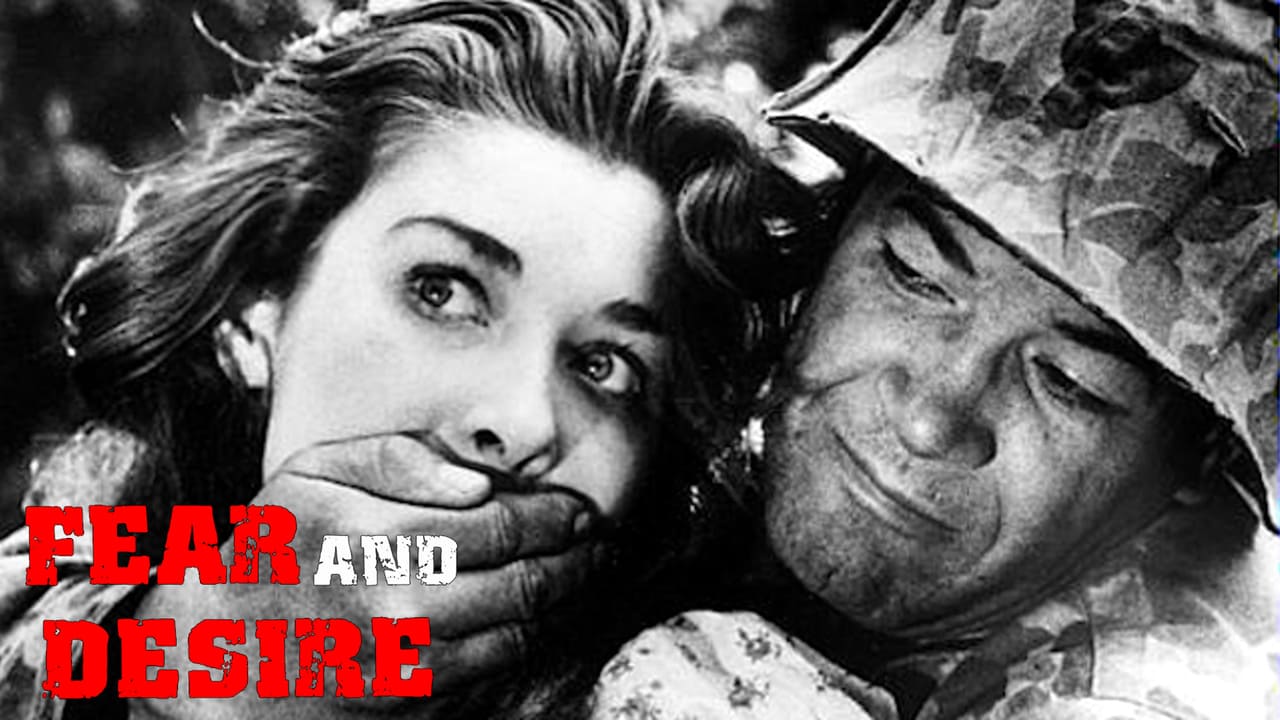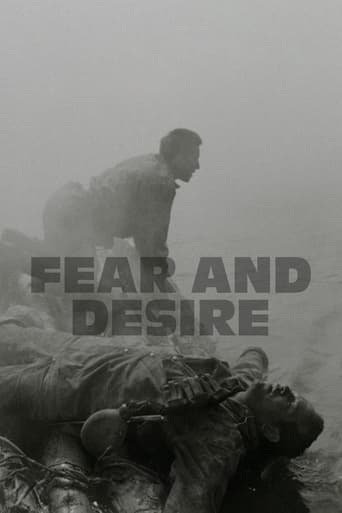

Masterful Movie
... View MoreGood concept, poorly executed.
... View MoreThis movie was so-so. It had it's moments, but wasn't the greatest.
... View MoreBy the time the dramatic fireworks start popping off, each one feels earned.
... View MoreInteresting subject. More interesting to know that Kubrick and Mazursky were buddies when both were unknown. The opening and ending shots are the same conforming to Aristotelian aesthetics.
... View MoreTrapped behind enemy lines, the stress of the situation has varying impacts on four soldiers in this existential war movie from Stanley Kubrick. The film marked the great director's feature debut, and poorly received at the time, Kubrick subsequently tried to suppress it, citing the film as the work of an amateur. This controversy has lead to the film acquiring a mixed reputation over the years, but it is a far more accomplished motion picture than one might expect. While not as stylistic and innovatively shot as 'Killer's Kiss', it actually spins a more engaging narrative, focusing on war from a psychological standpoint with memorable lines such as "enemies do not exist ... unless we call them into being". In an effective touch, Kubrick also lets the characters' narrated thoughts aloud overlap at certain points, and with the way the characters discuss and debate war, Samuel Fuller's superb 1950s war movies frequently come to mind. The film's biggest weakness is the acting. Virginia Leith is superb in a brief turn in which her close-up facial expressions convey more than words possibly could, but everyone else is uneven at best with dialogue delivery sometimes stilted. A renowned perfectionist, it is no surprise that Kubrick was dissatisfied with certain elements of the film, but had he not disowned it, it is unlikely that it would be as poorly received at it often is these days. The choice to not specify the actual war or any nationalities provides the story with a welcome universal quality that resonates strongly considering all the other wars that have occurred since 1953.
... View MoreFrom the filmmaking standards of director Stanley Kubrick, Fear and Desire is a terrible film. As a debut feature however, there have been far worse examples in cinema. It's more like an experiment gone wrong rather than a polished presentation and one can understand why Kubrick himself tried to acquire all its prints in order to prevent it from ever being seen again.Set in an unspecified country where a fictitious war is brewing, Fear and Desire tells the story of 4 desperate soldiers trapped behind enemy lines and covers their plan of making it back to friendly territory. Their decision to build a raft & float back under the cover of nightfall is ultimately sidetracked when they are discovered by a young woman which then forces the soldiers to confront their fates & desires.There is not a single thing present in the film that can serve as an indicator of a filmmaker who would go on to become one of cinema's most influential figures as the direction is pretty stale & the themes aren't properly addressed as well. Still, not everything is bad here as its attempt to deal with the subject of war without taking sides & portrayal of human temptations is worth mentioning even if it comes off rather too pretentious.The performances aren't any impressive too as the actors either end up being too hammy in their given roles or have no idea how to react in front of the camera. On an overall scale, Fear and Desire may manage to impress in bits n pieces but for the majority of its runtime, it's a shallow experience that viewers should check out if they're hellbent on finishing Kubrick's filmography, else it can be skipped.
... View MoreThis is the only Kubrick non-documentary I had not seen so, in spite of having read many negative comments (even from Kubrick himself), I figured I needed to see it. I have a hard time finding anything good to say about it--the acting, story, and music are decidedly sub-par. Usually there is some hint of things to come in the early works of most geniuses. Think of Orson Welles when he made "Citizen Kane"--he was about the same age as Kubrick when Kubrick made "Fear and Desire." Welles did make the comment that he began at the top and worked his way down, quite the opposite from Kubrick. How Kubrick could come back from "Fear and Desire" to direct "Paths of Glory" only four years later is hard to fathom. It would be like Einstein not being able to handle simple algebra in 1900 and then coming up with special relativity in 1905.At just over an hour this has the look of an early, and forgettable, television drama. As director, producer, cinematographer, and editor this is pretty much a wholly owned Kubrick effort. No wonder he tried to suppress its release.
... View More